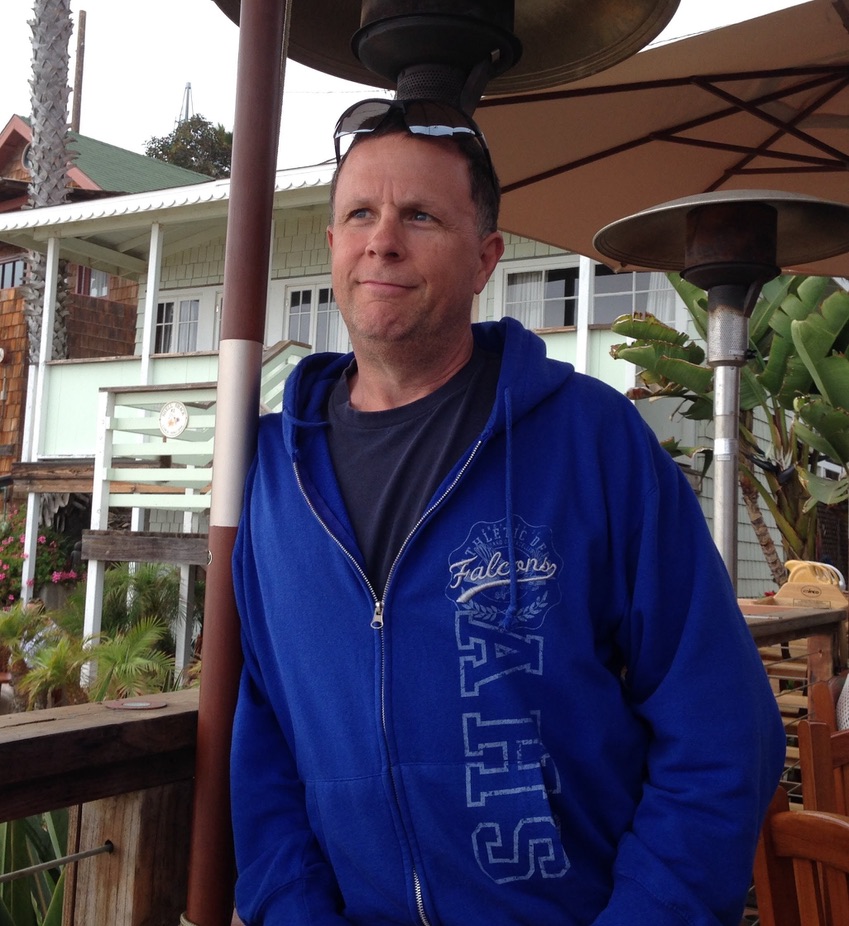The Hook, the Rack, and Strong Verbs
You gotta hand it to the Ancients. They knew little about medicine, but they made up for it with ingenuous torture devices. And the names! The Brazen Bull. Chappy Chopper, and the Scavenger’s Daughter, just cite a few. Let’s not forget the ever popular Pear of Anguish. What do Medieval torture devices have to do with teaching AP Literature? More than you might think.
I taught AP Lit for 18 years, A major focal point is analyzing literature. We (really they) would write about twenty essays during the year. Each essay, around 1000 words, would be written one week, graded by moi, and then revised the next week. The key word in that sentence? Graded.
Aye, there’s the rub, as Hamlet said. (Yep, we wrote about Hammy.) Here’s a free nugget about writing. The verb is the core of the sentence, the lifeblood, the marrow in the bones. Weak verbs doom good writing. Identify the weak verbs and replace them with strong verbs. Voila! Your writing improves. But how? It ain’t as easy as it sounds.

Bob Ranieri, one of my mentors, bequeathed to me roughly one million documents related to AP Lit. This innocuous looking sheet (on the right) became the source of torture for countless AP students who dared to enter my lair. It details all the verbs labeled as weak in their essays.
Each time a weak verb appeared in an essay, I wrote above it in red ink WV, a simple designation. They viewed the page as a collection of blood stains, further evidence of my torturous methods. In revising, students were tasked with improving the content AND style. I warned them about the difficulty. “It can be done,” I reassured them frequently.
Keep in mind, these are the best and brightest seniors in the school. For twelve years, teachers had fawned over their writing with verbal accolades and star stickers and maybe even parades. Seniors weren’t prepared for my onslaught of comments on how to improve their work. Especially, they took offense at the torrent of WV’s, flocks of sunburned seagulls circling their neatly typed pages, infiltrating every paragraph.
Each week when I returned the essays, I steeled myself for the comments. Fortunately ,pitchforks and torches are outlawed in public schools.

“Mr. Hurley, I can’t fix twenty-seven weak verbs.” The words would be followed by a plaintive look, maybe even puppy dog eyes. Fortunately, I’m inoculated against non-verbal stratagems.
“Grrrrr. Grrrr.” Eyes narrow, lips in full Roy Kent sneer. (Click here for Roy’s visit to Oscar the Grouch.)
(With tears)–“I worked really hard on this.” (Look of disgust, essay dropped for dramatic effect).
There was anger, the second phase of grief. “What’s wrong? These are good verbs. This is a good essay. No, it’s a great. This is bogus. Totally unfair.” (I didn’t even point out his six spoken sentences all had weak verbs, except the fragment at the end.)
“You don’t even care about writing. You just love to (here it comes…) torture us.”
Ah, yes, that’s right. I spend hours every week, grading upward of 700 essays per year. On average, each essay took fifteen minutes to grade. And why? For the I glee I derived from torture. Um, no. Trust me; no torturer ever worked that hard. Bunch of Yahoos (yep, we read Gulliver’s Travels too).
Slowly, painfully, incrementally, with calloused fingers and cramping carpels, the light would dawn on many of them. They system they decried and condemned as “too hard” brought the desired result. Their writing improved, often significantly.
Roughly ten years after graduation, a former AP Lit student returned to visit (not me) and saw me in the cafeteria. Her first words to me? “Mr. Hurley, I can’t even tell you how angry I was in your AP Lit class. The whole year.” Her face turned crimson. So much for absence making the heart grow fonder and time healing all wounds. I wanted to reply that she graduated (with honors) a LONG time ago. Or maybe a good therapist would help, possibly a barrel of tranquilizers. Instead, I smiled.
Then came part two: “I thought I was pretty strong student, but your class, it made me a better writer.” Hers was a common experience. Sometimes they’d tell me at the end of their senior year instead of waiting ten years, but both work.

Photo by Yves Lummer
She articulated what so many had complained about for years. You think strong writing is simple? No way. In the words of George Harrison, “You know it don’t come easy.” Often, you can’t simply thesaurus up a sentence and sub in a new verb. It doesn’t work that way. Sometimes you have to rearrange the whole sentence to avoid those pesky linking verbs.
Trash talk across the centuries is unfair, but I’ll plunge into the waters. The Medievals were lightweights. There, I said it. They merely inflicted physical pain. Okay, immense, scarring, blood-chilling physical pain. But try no weak verbs for a year. Imagine the taunting specter of dancing WV‘s invading your dreams and your waking hours? Those two letters can roll around your melon for nine months, make you question the every word you write or speak. Forget about the Iron Maiden and the Lead Sprinkler; I am the dungeon master. I taught AP Literature.










LOVE action verbs and awesome adjectives!
I know you do–it’s right in your wheelhouse!
Verbs, Nouns, putting together a nice sentence.
Some people like me never graded well, (inCanada I would not have gotten goods “marks” either.)
The English language is funny, I’m a lousy writer, but have still made a living using verbs and nouns in the verbal form. Talking doesn’t require punctuation.
I still use Mike Hurley as my English resource, ask him.
Balls
Verbal vs. Written–2 different modes. You got the Hurley gift of gab and ran with it. Screw the Canadians; you got good “marks” from me.
Thank you. My first A!
Like reading my old diary. Wow! I remember going to Lake Yosemite in the afternoons and grading essays. Blood stains on the paper. Classic.
Blood stains was Melanie’s contribution. She nailed it! Grading at the lake sounds fun but I’d be tempted to let them blow away. Oops, I dropped the essays off the pier!
So, that which doesn’t kill you, can/will make you stronger. I would seriously explore this reply for my use of verbs but I don’t have to. (there I ended my comment with a preposition too).
You really live on the edge, JP. For the record, 2 WV and a dangling preposition. The nuns would be horrified.